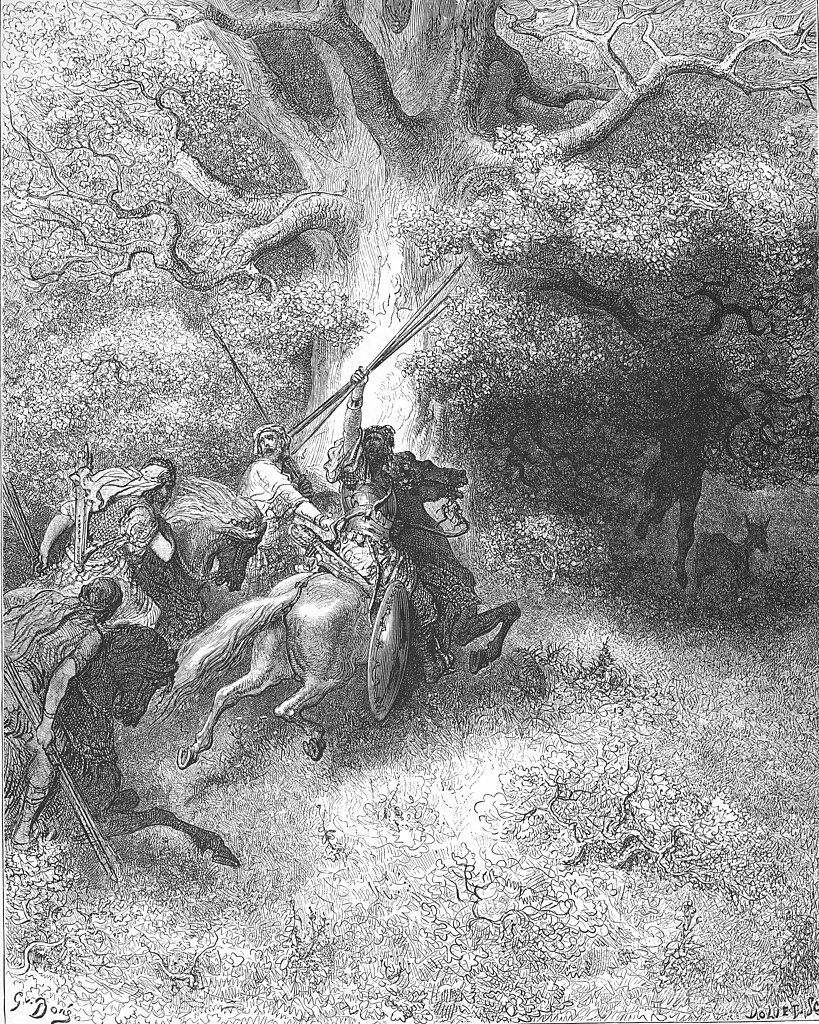Death of Absalom by Gustave Doré, 2 Samuel 18:1-18, Bible.Gallery

Death of Absalom created and it was drawn with engraving style.
Artwork Description
David's third son, Absalom, conjures images of the handsome yet dissolute and unprincipled Alcibiades from Greek history. Despite his abundant blessings, Absalom met a disgraceful fate. His physical appearance made him the nation's pride and joy. "In all Israel there was none to be so much praised as Absalom for his beauty; from the sole of his foot even to the crown of his head there was no blemish in him." Moreover, he possessed a charming demeanor, sharp wit, and resolute will.
However, his father's strict treatment due to his own misconduct, combined with a nefarious ambition, drove him to scheme for the throne. To achieve this, he employed all the tactics of a skilled demagogue, currying favor with the people and undermining the king's authority. After years of preparation, he unfurled his standard in Hebron, securing the loyalty of David's trusted adviser, the wise Ahithophel, and amassing supporters from far and wide. When news of this formidable revolt reached the king, he hastily fled from his capital in distress, finding refuge in Mahanaim beyond the Jordan.
In the meantime, Absalom entered Jerusalem in triumph, arrogating to himself royal prerogatives, some in an offensive manner. Craftily, he was persuaded by a secret ally of David not to immediately pursue his father and decisively end the conflict but to wait until his forces were fully assembled. This respite allowed David to rally his loyalists and take a resolute stand for his throne. When Absalom finally crossed the Jordan, he encountered a sizable, well-equipped force awaiting him, led by three trusted commanders, with orders to treat Absalom gently.
The battle unfolded in the wood of Ephraim, with David's forces emerging victorious. As Absalom sought to flee, he met a peculiar demise depicted in the illustration. Riding through the forest, his head—possibly ensnared by his flowing hair—became trapped in the branches of an overhanging tree, and his mule passed from beneath him. In this vulnerable position, Joab found him and, with his ten attendants forming a circle around the tree, struck Absalom's heart with three darts. Subsequently, his body was cast into a vast pit and covered with a mound of stones, similar to those heaped over the graves of heinous criminals. This was the inglorious end and disgraced resting place of a king's son, the most attractive and popular man of his generation. It was the fitting recompense for bitter revenge, unbridled self-will, and filial ingratitude.